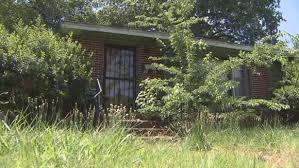 Home-Buying for Beginners: 8 Red Flags When House-Hunting
Home-Buying for Beginners: 8 Red Flags When House-Hunting
It’s easy to get drawn into a property based on its aesthetics. After all, granite countertops, fresh paint and new carpets all make a good first impression; they also could cause you to overlook some serious sins that might make you regret purchasing the home. Keep an eye out for these red flags when searching for a new home, as they could indicate something’s awry.
1. Plenty of ‘For Sale’ Signs
Take a look around the neighborhood. Do you see a lot of other “For Sale” signs? If it’s in an urban area, does it look like area businesses are thriving or at they closed in the middle of the day? If no one else wants to live on the street, chances are you might not want to either.
At the same time, ask the appropriate person about the number of rentals in the neighborhood. In some cases, renters are no big deal, such as in a city that is renter-driven like San Francisco or New York City. In the suburbs or a rural area, however, properties that are not owner-occupied and owner-maintained often aren’t well cared for. That could affect the property values of the entire neighborhood.
2. Neglectful Neighborhood Maintenance
Everyone leaves a child’s toy or bike outside now and then. However, if the neighboring properties have overgrown lawns or garbage bins hanging around outside, it’s a sign that the surrounding folks don’t practice proper maintenance. Again, this is a red flag that the neighborhood might not be the homey, welcoming place you desire.
3. Closets Packed to the Brim
Once you’re serious about a home, count the number of storage spaces in the home. Open the closets and cupboards to see how much stuff is packed inside them. If items fall out when you open the door, that’s a sign that the house doesn’t have enough storage space. Compare the number of storage spaces to what you currently have to determine if it’s suitable for your items.
4. Too Many Area Rugs
The current homeowners might have cold feet–or they might be hiding damaged floors. Lift up those rugs to see what’s under them. You could find a cracked tile, a stain on the carpet or water-damaged wood. While these things aren’t deal-breakers, it’s best to know what you’re getting into.
5. Suspect Repairs
If the current or previous homeowner fancied himself a repairman, you might be walking into a home full of DIY fixes. While an amateur can certainly paint a wall or even tile a floor properly, suspect repairs in the realm of plumbing and electrical should make you wary. They might not follow building codes, and they could fail or cause additional damage in the future.
6. Missing or Compromised Gutters
Stand outside of the house and follow the gutters to where they drain. Insufficient drainage around a home’s exterior could lead to water problems in the basement,  garage or crawl space, creating a compromised house foundation and mold problems. If you’re able to, get up close and personal to verify that the gutters and downspouts have been maintained to lead water away from the home.
garage or crawl space, creating a compromised house foundation and mold problems. If you’re able to, get up close and personal to verify that the gutters and downspouts have been maintained to lead water away from the home.
7. A Strange Smell (Or a Really Good One)
You will recognize the smell of cigarette smoke or cat urine instantly. But is there another smell you can’t quite place your finger on? Find the source to ensure it’s something that can be taken care of. If you step in and all you smell is potpourri or scented candles, be aware that this could mean they’re trying to cover up a smell that can’t be easily removed.
8. A Foreclosure
Buying a foreclosed property can mean a bargain. However, continue to visit the home before you sign the final papers–a former homeowner might, at any time, come back to destroy the property. Stripped or damaged cabinets, broken appliances, stolen pipes, purposely stained carpets–this is all par for the course when dealing with a foreclosure.
Final Word: Always Get a Professional Inspection
Buying a house is expensive, and a home inspection adds to that cost. However, you could end up paying much more than the cost of the inspection when the water heater fails down the road or your home sustains an electrical fire due to faulty wiring. The home inspector might not catch every potential problem, but they’re experts in knowing what could make or break your future in the house.
If you go ahead with the inspection and find that your dream home needs plenty of work, use it to your advantage. Negotiate a lower price or write it into the contract that the current homeowner must make certain repairs before closing.
No home is perfect. However, don’t let the pretty façade blind you to the red flags warning you that it isn’t the right property for you. It might mean searching for the right home a little longer, but in the end, you’ll be glad you went into the process with eyes wide open.
© http://ballennetwork.com/home-buying-for-beginners/
Posted by Steve Harmer on


Leave A Comment